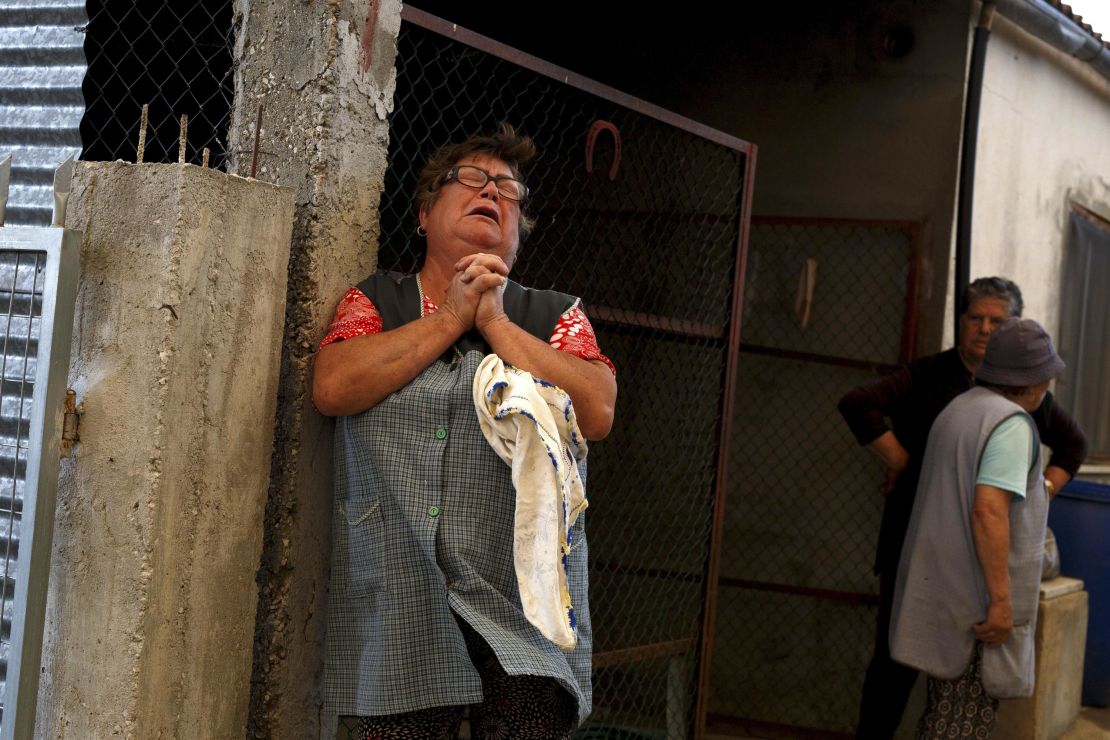The European Court of Human Rights will hear an “unprecedented” lawsuit on Wednesday, brought by six young people against 32 European countries accusing them of failing to tackle the human-caused climate crisis.
The claimants, between ages 11 and 24 and all from Portugal, will argue that they are on the frontlines of climate change and ask the court to force these countries to rapidly accelerate climate action.
It is the first climate case to be filed with the European Court of Human Rights and is the largest of a total of three climate lawsuits the court is hearing.
The stakes are high. A win would force countries to rapidly scale up their climate ambitions and would also offer a huge boost to the chances of other climate lawsuits around the world – especially those arguing that countries have human rights obligations to protect people from the climate crisis.
If the court rules against the claimants, however, it could prove damaging for other climate claims.
“This is truly a David and Goliath case, that’s unprecedented in its scale (and) its potential impacts,” said Gearóid ó Cuinn, the director of Global Legal Action Network, or GLAN, which has supported the claimants’ case.
“Never before have so many states had to defend themselves in front of anywhere in the world,” he told CNN.
Deadly wildfires
The journey to Wednesday’s hearing began six years ago. “Everything started in 2017 with the fires,” said Catarina Mota, one of the claimants.
Devastating wildfires burned 500,000 hectares of Portugal and killed more than 100 people that year. As the fires crept towards where Mota lived, her school and others in the area were closed. “The smoke was everywhere,” she told CNN.
The disaster catalyzed the lawsuit. Mota started talking to her friend and now fellow claimant, Cláudia Duarte Agostinho, and with the assistance of GLAN, they gathered four more claimants, all of whom were affected by the 2017 fires.


While the claim was triggered by the fires, climate change continues to affect their lives, the group argues, particularly the fierce heat waves that Portugal regularly experiences. They say these periods make it hard to go outside, to concentrate on schoolwork, to sleep and for some even to breathe, in addition to the impacts on their mental health.
“It makes us worried about our future. How could we not be scared?” said 15-year-old claimant André dos Santos Oliviera.
‘Like a legally binding treaty’
The lawsuit, which was filed in 2020 and has relied heavily on crowdfunding, was fast-tracked by the European Court of Human Rights due to the urgency of the issue and the large number of defendants.
On Wednesday, the claimants will argue that a failure to tackle the accelerating climate crisis is breaching their human rights, including their rights to life and family life, to freedom from inhuman treatment and to freedom from discrimination on the basis of age.
They are asking the court to rule that countries fueling the climate crisis have obligations to protect not only their own citizens but also those outside their borders.
Their demand is that the 32 countries, which include the 27 European Union countries plus Norway, Russia, Switzerland, Turkey and the United Kingdom, drastically cut their planet-heating pollution and also force companies headquartered within their borders to cut emissions across their whole supply chains.
For their part, the countries being sued have claimed in written submissions that none of the claimants has established they have suffered serious harm as a result of climate change.
The government in Greece – a country which has just experienced a deadly summer of heat, fire and storms – said in its response: “The effects of climate change as recorded so far do not seem to directly affect human life or human health.”

The lawsuit could go one of several ways.
The court could dismiss the claim on procedural grounds or decide that it doesn’t have the jurisdiction to hear it.
If it passes procedural hurdles, the court could rule that states do not have human rights obligations when it comes to climate change. “That could be very damaging to other similar cases,” said Michael B. Gerrard, director of the Sabin Center for Climate Change Law at Columbia Law School.
Or, the court could rule in favor of the claimants. The judgment would “act like a legally binding treaty,” ó Cuinn told CNN, forcing all 32 countries to accelerate climate action.
“This could be an extremely important decision that will inspire more climate cases throughout Europe and perhaps many other regions,” Gerrard told CNN.
The lawsuit is the largest of three claims before the court, all of which concern countries’ obligations towards their citizens when it comes to climate change.
The other two were heard by the court in March. One was brought by more than 2,000 older Swiss women, who claimed that climate change-fueled heat waves undermined their health and quality of life, and the other by a French mayor, who claimed France’s failure to act on climate change breached his human rights.
It’s unclear if the courts will make a ruling on all the claims together but the time frame between the hearing and the judgment is typically nine to 18 months, said Gerry Liston, senior lawyer at GLAN.
The rise of climate litigation
As extreme weather worsens, climate litigation is proving to be an increasingly popular tool to try to force climate action, especially as the world’s nations have not done enough to cut pollution and avert catastrophic levels of warming.
Even if current climate policies are met, the world is still on track for more than 2.5 degrees Celsius of warming above pre-industrial levels by the end of the century. The planet has already warmed around 1.2 degrees, and the impacts are clear. This year alone has seen record-breaking heat waves, unprecedented wildfires and catastrophic floods.
Countries are currently doing the bare minimum, said Liston from GLAN, and if every nation does that, “we are just going to keep going on this totally catastrophic trajectory.”
That’s why people have been turning to the courts. There are more than 2,400 climate lawsuits globally, according to the Sabin Center, with more added every week.
Climate litigation is an important tool, said Catherine Higham, coordinator of the Climate Change Laws of the World project at the London School of Economics. “But I think it’s absolutely only one piece of the puzzle,” she told CNN.
Continued advocacy and climate conferences – such as the upcoming United Nations COP28 summit in Dubai – are also vital, she added.
For the Portuguese claimants, it will be an anxious wait for the court’s judgment. Even if the claim doesn’t go their way, Mota said, at least it will have got people to sit up and pay attention.
Still, she added, “we long for a positive outcome.”


